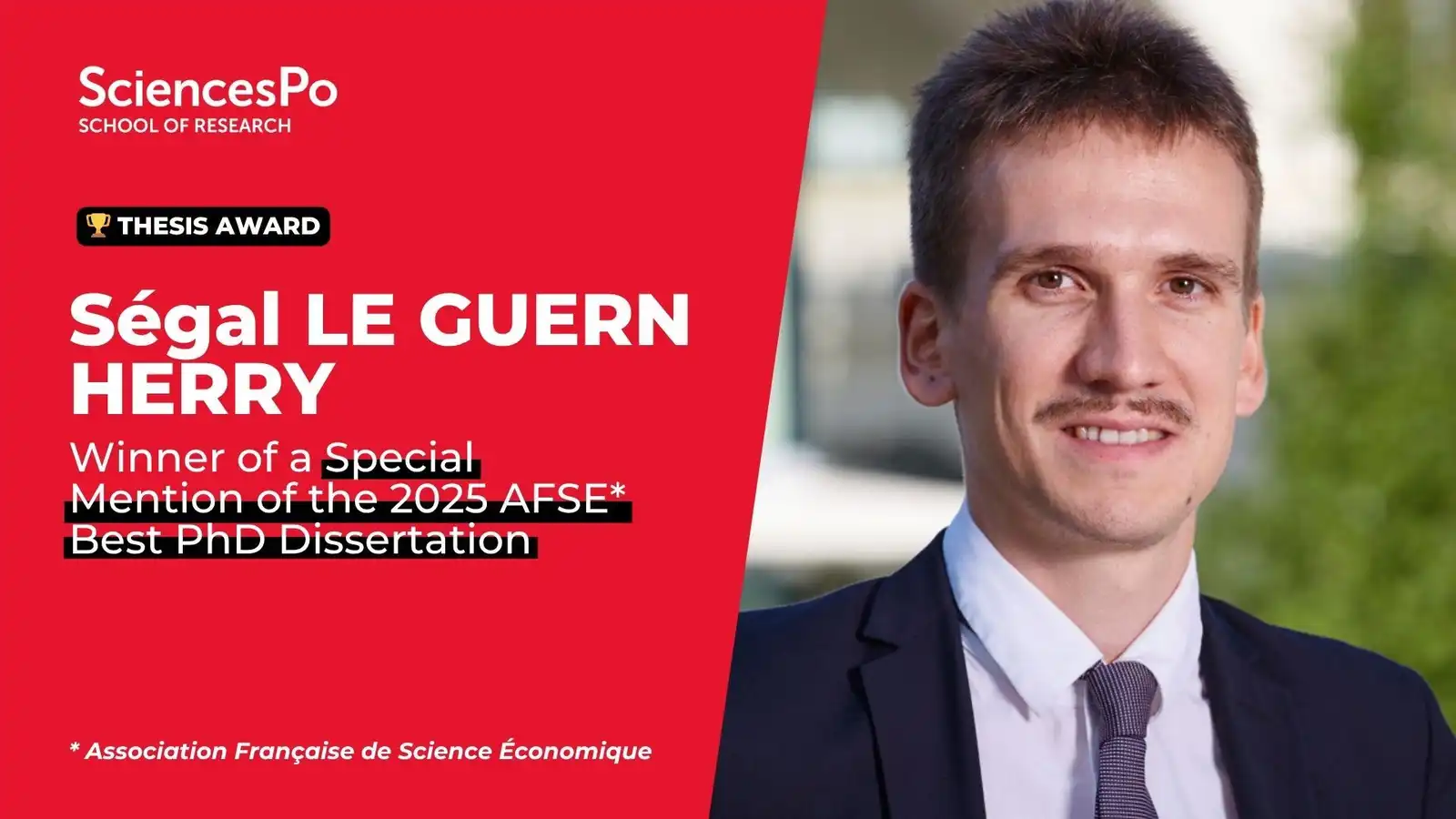Home>Ségal Le Guern Herry, Special Mention of the AFSE 2025 Thesis Prize
23.06.2025
Ségal Le Guern Herry, Special Mention of the AFSE 2025 Thesis Prize

The School of Research extends its warmest congratulations to Ségal Le Guern Herry, Doctor of Economics and laureate of a special mention in the AFSE 2025 Thesis Prize.
Ségal received his PhD at Sciences Po in June 2024. He was a Fulbright visiting Scholar at UC Berkeley from August 2022 to March 2023. He is currently an Assistant Professor at the Aix-Marseille School of Economics and senior economist at the EU Tax Observatory.
His doctoral thesis Essays on Behavioral Responses to Taxation, supervised by Jean-Marc Robin and Gabriel Zucman, brings new evidence to the debates on the desirability of higher taxes on the wealthy. Drawing on the increasing availability of detailed administrative data from several countries, the three chapters of his dissertation explore how taxpayers at the top of the income or wealth distribution adjust their investment strategies in response to changes in the tax environment.
PhD Dissertation Summary
Ségal Le Guern Herry's PhD dissertation brings new evidence to the debates on the desirability of higher taxes on the wealthy. Drawing on the increasing availability of detailed administrative data from several countries, the three chapters of his dissertation explore how taxpayers at the top of the income or wealth distribution adjust their investment strategies in response to changes in the tax environment.
The first chapter studies behavioral responses to wealth taxation using administrative data from France. In particular, Ségal shows that the 2017 abolition of the French wealth tax - and its replacement with a progressive tax on real estate - led French households to rebalance part of their real estate wealth toward financial assets. This response allows him to estimate the cross-elasticity between real estate and financial wealth, a key parameter for assessing whether it is desirable to tax real estate differently from other assets. The second chapter, coauthored with Jeanne Bomare, uses administrative data from the UK to analyze how tax evaders reacted to the introduction of cross-country information sharing on financial assets. The authors show that offshore investors exploited a loophole in the information exchange system, shifting investments into UK properties via tax havens to keep their wealth hidden. The third chapter, written with Annette Alstadsæter, Niels Johannesen, and Gabriel Zucman, estimates the degree of substitution between illegal tax evasion and legal tax avoidance using Norwegian administrative data. The findings suggest that when evasion is high, stricter tax enforcement can potentially raise more revenue than even large increases in nominal tax rates.
Find out more
